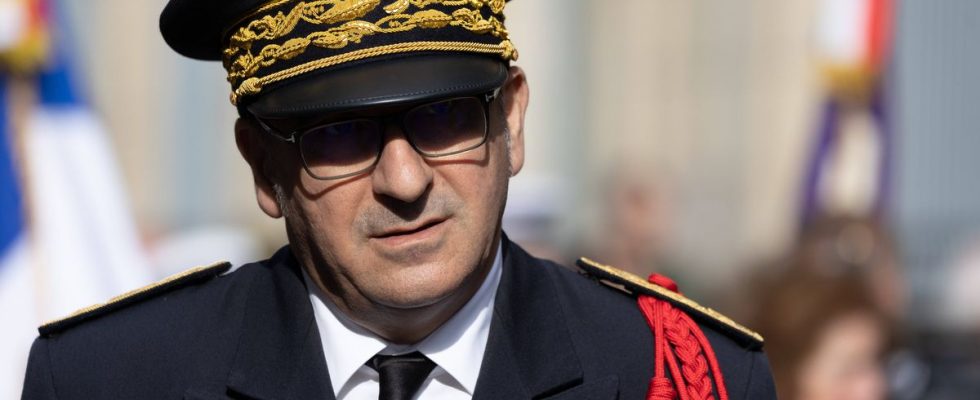“Do you think there is racism in the police? “No, certainly not”, replied Laurent Nuñez, prefect of police of Paris, at the microphone of BFM TV, Sunday, adding “There may have been cases which have been sanctioned, or some slippages” and saying “shocked by the use of this term”. An outing that aroused the misunderstanding of many commentators, including the elected environmentalist Raphaëlle Rémy-Leleu, who took advantage of current issues at the Council of Paris to challenge Laurent Nuñez this Wednesday, July 5.
“We need a republican police force, and therefore to fight the racism which gangrenes it”, said Raphaëlle Rémy-Leleu, considering herself “stunned” by the response on BFM TV from the prefect of police: “Racism in the police has been documented for years, by scientists, journalists, human rights institutions, grassroots organizations, and even whistleblowers from law enforcement. »
20 times more likely to be controlled
The elected ecologist is not wrong, it is the institutions of the State themselves who affirm it, like the services of the defender of rights. In 2017, in a “Survey on police-population relations”, it demonstrated, from a representative sample of more than 5,000 people, that 80% of people corresponding to the profile of “young man perceived as black or Arab » said they had been checked in the last five years, compared to 16% for the rest of the respondents. That’s 20 times more likely to be checked.
The President of the Republic himself reminded the Brut media: “Today when you have a skin color that is not white, you are much more controlled (…) We are identified as a problem factor and it is unbearable”. “All quantitative surveys, even in the general population, show that there is a problem, demonstrate that there is something to change in the police”, recently explained to Mediapart researcher Vincent Tiberj. A report commissioned by the Ministers of the Interior and of Justice also noted in 2021 a ” underestimation of discriminatory acts in the font. And even the United Nations recently felt that France should “seriously tackle the deep problems of racism and racial discrimination among law enforcement”.
“Your words are rather insulting”
Despite these facts, these data, the prefect of police persists and signs, less than 24 hours after a first altercation on this subject in the Council of Paris. Denying not, perhaps as its formulation may suggest, any form of racism in the police, since it recognizes many slippages, but a structural racism, called “systemic”. A racism which would therefore be explained by the way in which the police are structured and trained. “Yes it happens that a certain number of police officers have racist remarks, but you, you speak of systemic racism, retorted the prefect of police this Wednesday, July 5 in the Council of Paris. You said that racism plagues the police: it’s completely false, I can’t let you say that. »
The prefect of police was again shocked by the accusation of systemic racism. “Is your question a way to contribute to the appeasement? Is your question a way of thanking the police who fight against violence? I don’t have the impression, your words are more insulting than thanks,” exclaimed Laurent Nuñez, asserting to Raphaëlle Rémy-Leleu that he “would continue to exercise his responsibilities” “so that people sometimes ungrateful as you can continue to live in safety”. Big applause ended his response.
electricity in the air
The mayor of Paris seemed for her part to rather support the prefect of police, certainly believing that the death of Nahel deserved “that we ask ourselves calmly and that we coldly pose the elements of an equation which questions the state of our country, of the republican promise, on the report of the police and the population” but also affirming: “The solutions we will find them neither in the invective nor in the excess of the remarks”, thus seeming to disavow the elected ecologist, who is nevertheless part of his majority.
In total, these topical questions will have been rather stormy, the mayor of Paris having to interrupt in front of an inaudible reflection of the mayor of the 17th arrondissement, Geoffroy Boulard, and later in the face of a remark from the elected representative of the group Changer Paris Emmanuelle Dauvergne, retorting a “We don’t care” in the middle of the intervention of Anne-Claire Boux, deputy in charge of city policy. Anyway, there was electricity in the air.

